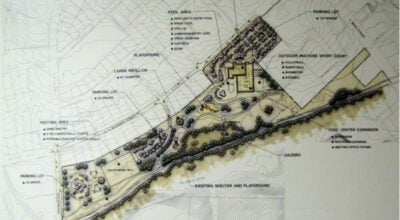Building coalition for Syria action no easy matter
Published 12:00 am Saturday, August 30, 2014
WASHINGTON (AP) — President Barack Obama’s acknowledgement the U.S. still lacks a strategy for defeating the growing extremist threat emanating from Syria reflects a still unformed international coalition.
The president is meeting with his top advisers and consulting members of Congress to prepare U.S. military options. At the same time, he is looking for allies around the world to help the U.S. root out the Islamic State group that has seized large swaths of territory in Syria and Iraq.
“Any successful strategy … needs strong regional partners,” Obama told reporters Thursday.
In the last year-and-a-half, Islamic State extremists have fought the Syrian army, Hezbollah and Iranian forces. They’ve clashed with al-Qaida’s local affiliate, routed Iraq’s army and pushed back Kurdish peshmerga fighters. American airstrikes in Iraq have recently caused somewhat of a retreat. But U.S. military leaders say the terrorists can’t be crushed unless their sanctuaries in Syria are targeted.
While debate in the United States centers on military tactics and Obama’s level of congressional and public support for action in Syria, U.S. officials are trying to come up with a coordinated approach to fighting the Islamic State group among a wide range of governments and militias. Some are competing against each other for influence or engaged in outright war.
A look at what the United States is probably asking, and not asking, of some of the region’s central players:
Iraq is the focus of U.S. strikes against Islamic State and is Obama’s priority. The U.S. wants the new government under prime minister-designate Haider al-Abadi to be as inclusive as possible, bringing Sunni groups back to the government and away from the Islamic State. It is trying to get the army to improve rapidly after it fled from several fights. The U.S. also is likely to continue arming Iraqi Kurdish forces. All of the efforts aim to push back the extremists on the battlefield and isolate them from supportive communities. If Sunni tribes turn on the Islamic State, as with al-Qaida in Iraq in the last decade, it could leave the group short of local recruits and safe havens.
The epicenter of the problem, Syria is still the big question mark for Obama. He says the U.S. won’t cooperate with President Bashar Assad, whose government is battling Islamic State fighters but whom Obama wants to leave power after a bloody civil war. U.S. and Syrian officials rarely, if ever, communicate any longer. However, the U.S. needs a ground force ready to assert control in the event of strikes against the Islamic State group. That won’t be American soldiers. And in Syria, there are only two real alternatives to Assad’s army and the Islamists: the moderate rebels and the Kurds.
The moderates are weak, squeezed by extremists and government forces, and may need American assistance simply to hold on. Syria’s Kurds, meanwhile, have long been ostracized by the U.S. for their links to terrorism in neighboring Turkey. Working with them against the Islamic State group would be a significant policy shift and probably require Turkey’s blessing. Having no one to fill the power void could lead Syria further down the road toward a failed state. As a warning, the U.S. need only look at lawless Libya three years after dictator Moammar Gadhafi’s ouster.
America’s only NATO partner among countries bordering Syria, Turkey will be counted on to help in any military effort there, at least in a supporting role. The Obama administration will want to see greater action from its ally preventing extremists and weapons crossing into Syria, and stopping Islamic State fighters from smuggling oil out of Syria and into Turkey, a significant source of its revenue. If the U.S. decides to more seriously support Syria’s opposition, it will probably ask Turkey to contribute in a big way. Much of the opposition’s more moderate leadership is in Turkey.
The leaders of the Sunni Arab world’s moderate bloc, the U.S. would probably seek their inclusion, too, in any military intervention. All have highly advanced air forces, largely featuring U.S. equipment. All share intelligence with the U.S. and can team up on special operations missions. Their participation would lend significant regional legitimacy to any U.S.-led bombing campaign. Washington hopes these governments can stamp out private funding and recruiting among its citizens for the Islamic State group.
Little can be expected from one of the world’s most hostile relationships. There is no room for Washington and Tehran to cooperate operationally. And their broader goals for Syria are at odds, with Iranian units fighting for Assad and the U.S. backing groups determined to oust him. When it comes to the Islamic State, however, U.S. and Iranian interests align. Officials even have held rare talks on the matter. The Americans, relieved at least that Iran is backing Iraq’s new government, hope their rivals will do nothing to destabilize the region further. To that end, the U.S. will probably protest only half-heartedly continued Iranian military support to Iraqi authorities in Baghdad and Kurds in the north, in contravention of United Nations sanctions. In Syria, the scope for even tacit understanding between the two sides is more limited.
America will count on its closest allies to provide significant humanitarian support for Iraqis and Syrians caught in the Islamic State’s warpath. It would welcome military action from powerhouses such as Britain and France, but the biggest U.S. concern with Europe centers on the Islamic State’s foreign fighters. The U.S. wants heightened vigilance toward thousands of Europeans fighting for extremist armies in Iraq and Syria. The concern is mutual, given that most European citizens can visit the United States without visas without visas and Americans can similarly travel freely to Europe. U.S. intelligence officials see Islamic State fighters with U.S. or Western passports as the greatest terror threat today to the United States.



